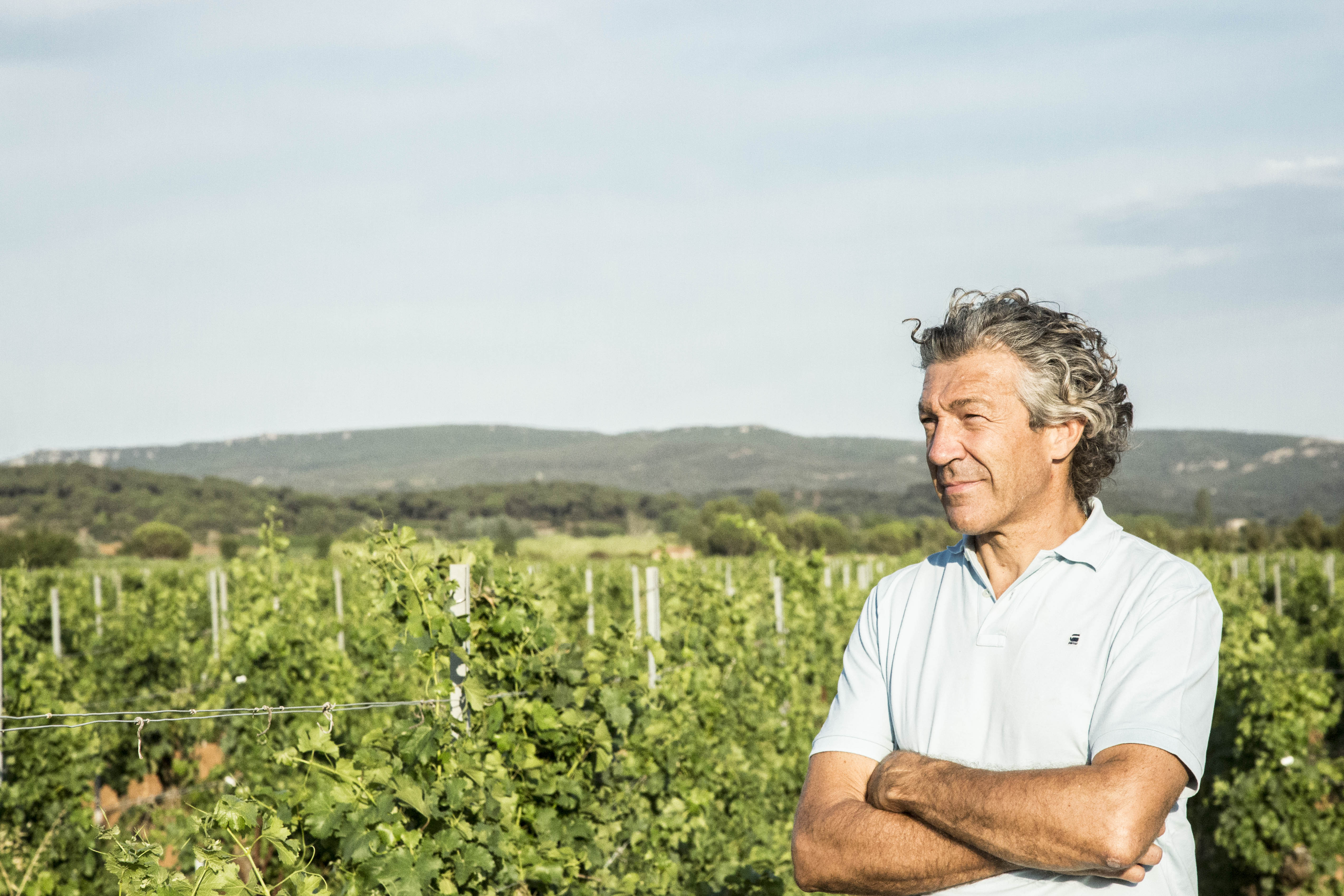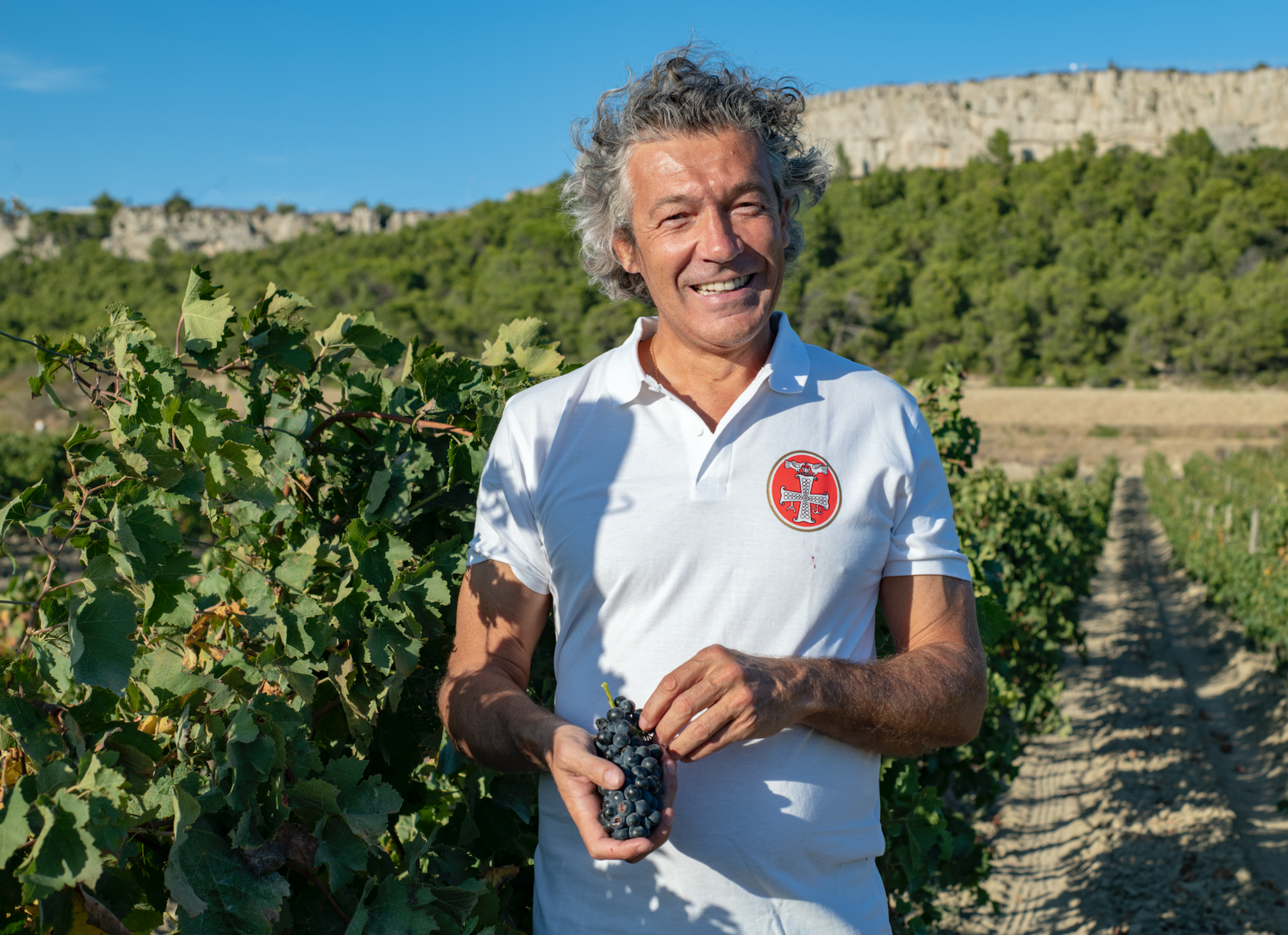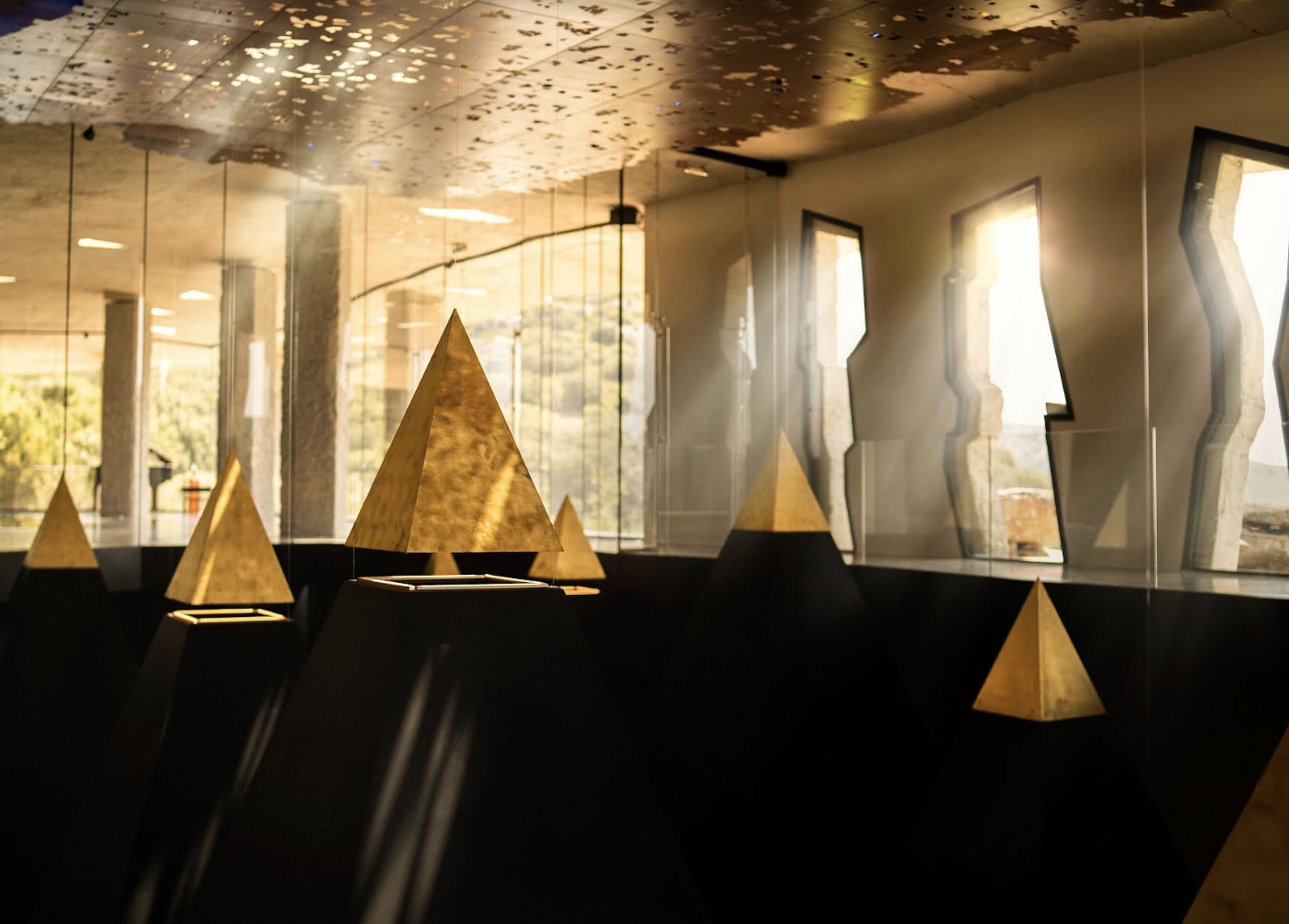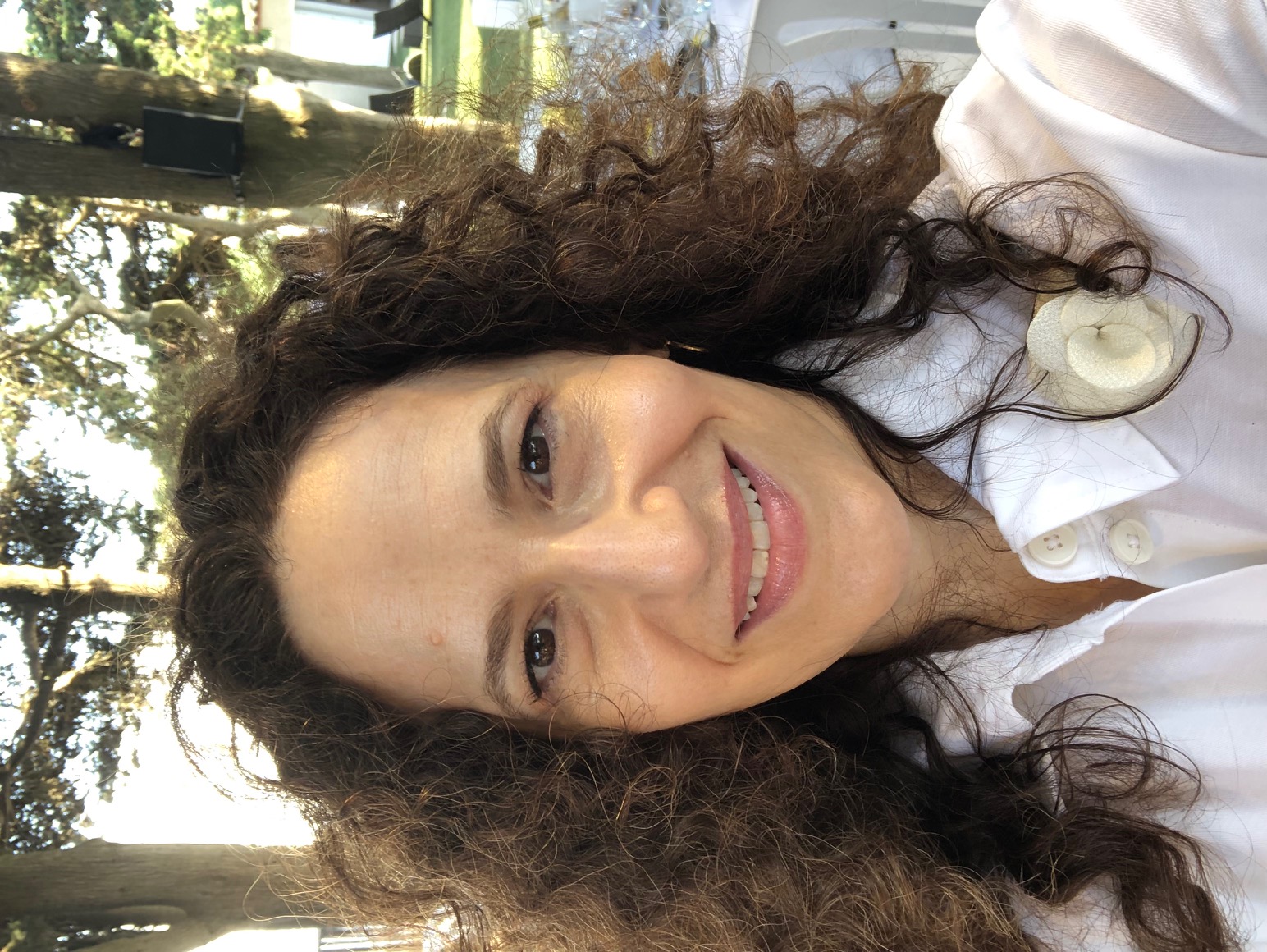
Gérard Bertrand’s 17 pristine, biodynamic vineyard estates are decades in the making, but it is his sense of purpose, commitment to the environment and his family’s long history in the Languedoc that speak volumes about what his vision and ambition truly entail. He is arguably the most innovative and imaginative winemaker in the entire region, and brought these wines out of their relative obscurity into world-class creations, such as his spectacularly fresh and complex rosé, Clos du Temple. The remarkable century-old Cinsault grapevines there reflect a distinctive geographic anomaly: a deep water table, soils composed of layers of schist and limestone, and hills surrounding the site which are actually younger than the schist found in the vineyard. (As Bertrand’s Clos du Temple vineyard manager put it, “We won’t have to wait 50 years to make a great wine; the vines were ready and waiting for us.”) We spoke with Bertrand during the 20th anniversary of his annual week-long “Jazz at l’Hospitalet” summer music festival at his gracious, 5-star Château l’Hospitalet Resort, Beach & Spa, in La Clape Natural Park, outside Narbonne.
(Interview translated from French)
Karen Lubeck: Do you feel like a pioneer?
 Gérard Bertrand: In all humility, yes, because I hadn’t planned to do all that I’ve done, and first, I dreamed it, visualized it, and little by little, it has all come true. One day I understood that in life, one must have great ambitions—not for oneself, but to accomplish things—and that if it is something that is good for others and for you, it ends up working. I was trained in wine and also played rugby at the highest level, so the sport gave me familiarity with going all-out, of having a team mentality, developing leadership skills, not giving up easily, and also understanding how to celebrate: Wine and rugby are both a celebration of victories, and learning from mistakes.
Gérard Bertrand: In all humility, yes, because I hadn’t planned to do all that I’ve done, and first, I dreamed it, visualized it, and little by little, it has all come true. One day I understood that in life, one must have great ambitions—not for oneself, but to accomplish things—and that if it is something that is good for others and for you, it ends up working. I was trained in wine and also played rugby at the highest level, so the sport gave me familiarity with going all-out, of having a team mentality, developing leadership skills, not giving up easily, and also understanding how to celebrate: Wine and rugby are both a celebration of victories, and learning from mistakes.
When I stopped playing rugby in 1995, I threw myself into my passion for wine, and it has been an incredible human adventure, since we went from having three employees to 450, from one estate to 17, three countries where we are sold to 175. It has been a road with some obstacles, but it has been a path in which we first had to try to develop an image of the region’s reputation—which wasn’t very good at the time—and then we needed to develop the quality of the wines. Innovation was also needed. There, too, I feel I’m a pioneer, as we are now the worldwide leader in biodynamic wines, and we were the first to successfully launch our sulfite-free wines around the world. We are among the top rosé producers anywhere as well.
Clos du Temple has won awards, and both the vineyards and the new winery on the property seem to be a testament to the power of nature. Can you tell me about your decision to create a cellar in which fermentation tanks are in a kind of dialogue with light from the sky?
 The cellar was made to allow the strength of the cosmos to come into it. Of course, this is very important for the fermentation process, for the yeast. We, too, are between the earth and the cosmos; we are from here but we are also cosmic people. We are in the middle. Since the fermentation process involves billions of yeasts working to change sugar into alcohol, it’s very important to let the energy into the place. That’s why we only use the golden ratio at the estate and with the bottle for this wine. It’s important, because when you put the wine in the bottle, you also retain the energy of the wine. With this rosé, you can develop a second life. You can drink it between 15 and 20 years. It’s like Champagne rosé.
The cellar was made to allow the strength of the cosmos to come into it. Of course, this is very important for the fermentation process, for the yeast. We, too, are between the earth and the cosmos; we are from here but we are also cosmic people. We are in the middle. Since the fermentation process involves billions of yeasts working to change sugar into alcohol, it’s very important to let the energy into the place. That’s why we only use the golden ratio at the estate and with the bottle for this wine. It’s important, because when you put the wine in the bottle, you also retain the energy of the wine. With this rosé, you can develop a second life. You can drink it between 15 and 20 years. It’s like Champagne rosé.
Can you tell me more about your latest innovations?
We’ve just released our orange wines, and this fall, we will launch French Cancan, a new line of brut nature sparkling wines. So each period of my life has brought me to new innovations. Here at Château l’Hospitalet, we emphasize the link between wine, gastronomy, culture, and art, with our three restaurants, including one dedicated to my grandmother’s traditional cooking, a beach club, and especially, with L’Art de Vivre, a Michelin-starred restaurant where we created a unique concept called “Vertical Cuisine” made without fat or butter, and where we source produce from our biodynamic farm in Celeyran. At this restaurant, we offer something called the Moon Room Experience, which weaves together seven dishes, seven planets of the solar system, seven biodynamic wines, and seven pieces of music that are tuned to the frequencies of each planet. It is an ultra-sensorial experience that has never been done before.
You have so much energy! You are also an author?
Yes, I’ve written three books, two of which have been released. The third is coming out on September 12, and it’s called Le Vin Multidimensionnel. It explores the terroir effect, and how the precision of blending can make for an extraordinary and singular wine, as well as open new possibilities. The book will be available in English next January.
What do you envision for the continuation of your family business?

Do you feel free to do as you wish as a winemaker in the Languedoc, given the relative constraints you might encounter in a region such as Burgundy or Bordeaux?
Yes, absolutely, because you feel less weight of tradition here, so one is more open to experiment, to take risks. And in life, what I’ve found is that success is always proportional to the risks one is willing to take. I’ve always been avant-garde, always wanted to explore unknown wine regions. In this area alone, we have about 50 different appellations and 70 varietals found between the Spanish border up to Provence; we have different micro-climates, so we have the most beautiful playing field in the world! It has taken time to reveal itself, because I’ve spent almost 40 years working on it, but it is fantastic, it has been worth it, and I am ready for the next 20 years!










